By Tony Willard
For 15 years Romford Mazda staggered along, failing to fulfil anything like its potential. Then, in 2007, two brothers acquired the business with a novel vision for success: there would be no managers apart from themselves.
With this unlikely platform the dea-lership in north-east Greater London made gradual progress, which five years on led to recognition by being named sales team of the year at the 2012 AM Awards in February.
By Tony Willard
For 15 years Romford Mazda staggered along, failing to fulfil anything like its potential. Then, in 2007, two brothers acquired the business with a novel vision for success: there would be no managers apart from themselves.
With this unlikely platform the dea-lership in north-east Greater London made gradual progress, which five years on led to recognition by being named sales team of the year at the 2012 AM Awards in February.
That was not bad going for director and dealer principal Amarjit Shokar whose previous business experience was running convenience stores.
The remarkable transformation of the business, driven by Shokar in partnership with his brother Kam as fellow director/sales manager, was achieved with the retention of most of the original sales team.
After acquisition Amarjit Shokar gave employees a pay rise because he knew morale was low and then revitalised the team with his business plan (see panel, below). Only five team changes were made during the following five years at a dealership that used to be constantly weakened by staff churn.
Equality for employees
A receptionist was employed to ensure everyone entering Romford Mazda was dealt with properly and MSX International, the AM Awards auditors, was impressed by the team ethic.
Instead of having managers, each employee is equal and has a say in the running of the business.
All have a development pro-gramme to help them become more professional and they are expected to take full responsibility for playing their part in the company.
To achieve the move from the convenience store to heading a franchised dealership, Amarjit Shokar worked at a Volvo dealership from 1995 where he received training in all areas.
In 2007 he raised the money to buy Romford Mazda out of administration.
The business had declining sales. It was making a profit of around £60,000 a year – a mere £15,447 after tax in 2006.
Romford Mazda was possibly the manufacturer’s worst-performing outlet, in terms of both financial stability (precarious) and customer satisfaction (negligible).
Shokar believed the Mazda brand had the potential and saw how the franchise opportunity had been neglected. “It was difficult to understand the performance in a market area that had potential for sustainable growth,” he said.
“The business is now enjoying phenomenal success. The attitude of our team is extremely caring. We all treat the business as our own.”
MSX auditors could see how this culture and attitude contributed to the success and sustainability of the business through the difficult trading conditions that started with financial collapse of 2008, the year after Shokar bought it.
“The people we employ have become extremely good at what they do through training and because they care,” he said. “This is reflected in our internal customer satisfaction polls.”
3% sales return objective
Romford Mazda spent around £80,000 to modernise the dealership, and make it one of the best in the area, he says, with an objective of a 3% return on sales.
To do this, the Shokar brothers always aim to challenge their team to improve results, but in an environment they find fun to work in.
Amarjit said both sales and aftersales revenue have increased by between 80% and 90%. He aims for winning relationships with all cust-omers and suppliers and a key component of the business is that satisfaction reports must be in the upper quartile of all dealers.
“One never gets a second chance to make a first impression,” he said. “It starts with customers being able to park with ease, and ensuring our showroom and displays are always immaculate.
“Each customer’s requirements must be qualified quickly and with an appropriate course of action. This applies to everything.”
The Shokar brothers’ long-term ambitions include adding an adjacent location/dealership, developing economies of scale and reducing costs.
Romford Mazda is in a shopping parade and close to the M25 and A12. In 2006 the dealership sold 241 new and used cars, increased by the Shokars in their first year to 545 vehicles. In 2008 there were 744 sales and in 2009 this rose to 966. In 2010 it was 843.
The increase in sales meant it was creating a potential for additional aftersales revenue. Two more technicians were employed to make a team of five.
“We continued to focus on aftersales, which we believe is key to sustainable profit in all areas of the business.
“Our customers have confirmed that price is important, but confidence, trust, level of service and dealership environment all play a large part in the decision when people consider where to take their car.
Customers are travelling past other Mazda dealerships to visit us and this reinforces our view that staff attitude and enthusiasm are important.”
Imaginative dedicated team drives sales
When the new owner arrived at a dealership bought out of administration three years ago he was shocked: “It had not been cleaned or painted for five years or so,” he told auditors from MSX International.
There was also a surprise at “the abject state of the facility”. There were orders for 40 new cars for a coming plate change month. “I could see that with the right guidance, leadership and communication, a sales performance in excess of what had ever been achieved in the business before was possible,” the owner told the auditors.
“The sales team responded quickly and achieved sales of 56 new cars in that month. “Their dedication and performance ensured we got off to a flying start.”
Within a year a third salesman was added to make the most of the potential for sales. Each salesman handles a deal from greeting to close, including arranging finance.
“Preventing customers being ushered from one person to another has proved immensely successful and creates a real opportunity to develop a strong relationship built on trust.
“This has also aided the relationship between sales and aftersales.”
In a later plate-change month, the sales team began with seven deals against a manufacturer target of 55. They offered existing customers a new car for the same monthly payment.
Two prospecting evenings were organised and landed more than 30 deals in the final total of 62 sales. The team is encouraged to be imaginative. A prospect who wanted his wife to see a car was told to take it home for a couple of days to make sure they were in agreement. A sale was made.
Team building leads to happy customers
As the new owners of Romford Mazda, the Shokar brothers resolved to employ or recruit only people who shared their values and business objectives. They knew that to turn the business round every customer needed to feel they mattered, while keeping a close eye on the business potential they represented.
The dealership introduced regularly measured operating methods with defined minimum standards, and with frequent reviews. Checks are made daily on targets and monthly to track against previous years and market conditions. Customers for life are the objective.
The team at Romford Mazda conducts satisfaction surveys on customers, records their
reactions and gains feedback. The company then takes action when scores fall below its required standards.
The business plan sets out to satisfy the objectives of Mazda, the directors, the funders of the business, staff and customers.
Shokar said: “We always aim past the objectives and profit aspirations.
“Our business plan is reviewed weekly, we react quickly when action is required and share information with every member of our team. We ensure our staff receive training and clearly understand the requirements of our business.”
Early on, Shokar encouraged better communication. Processes were introduced and developed by them so that each person had something to work with. Everyone was given clear, defined roles with a full understanding of what their colleagues did and required from them.
“This allowed gaps to be filled when people are away and ensured that the next person could complete their task without having to wait for something,” said Shokar.
Login to continue reading
Or register with AM-online to keep up to date with the latest UK automotive retail industry news and insight.

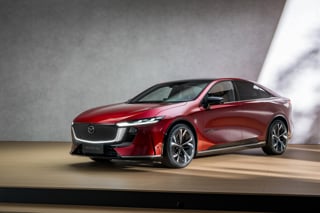
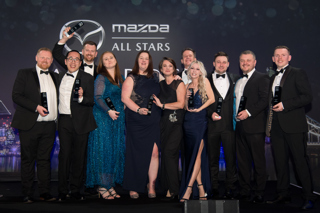
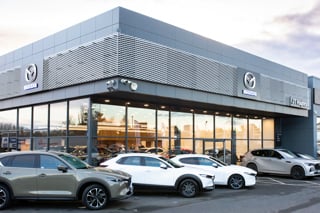
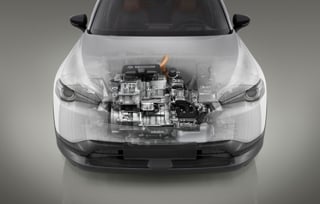
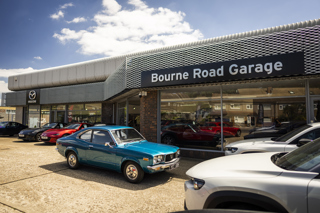












APC1953 - 09/10/2012 07:38
Brilliant